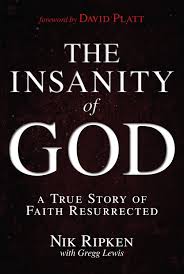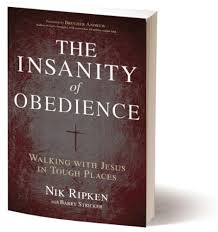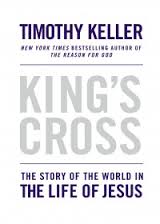Today’s “Five @ Free Flow Friday” is going to be different.
And this week shall be as well (that’s the King James Version).
Though “officially” summer does not begin until June 21st, in my part of the world, it’s here.
School’s out. Baseball games are in full swing (pun intended). Swim camp and Kidz Kamp are going on as I type. The temperature is rising. The box fans are out of the attic and on my back porch. The mosquitos are despised and rejected by Matt. And the “2 a day showers” are, well, happening.
Summer is here whether the calendar says so or not.
This means that, perhaps, though life may not slow down – it might mean that you will have some time by the pool or the ocean or the lake that you don’t normally have (or take). Or, it may mean you might have some time to enjoy a few solitary moments by yourself in the AC, while everyone else is outside.
Either way – perhaps you are looking for some book recommendations to read over the summer.
Let me suggest these 5 books (in keeping with the Five @ Free Flow Friday theme):
#1. The Insanity of God: The True Story of Faith Resurrected by Nik Ripken
 “The Insanity of God is the personal and lifelong journey of an ordinary couple from rural Kentucky who thought they were going on just your ordinary missionary pilgrimage, but discovered it would be anything but. After spending over six hard years doing relief work in Somalia, and experiencing life where it looked like God had turned away completely and He was clueless about the tragedies of life, the couple had a crisis of faith and left Africa asking God, “Does the gospel work anywhere when it is really a hard place? It sure didn’t work in Somalia.
“The Insanity of God is the personal and lifelong journey of an ordinary couple from rural Kentucky who thought they were going on just your ordinary missionary pilgrimage, but discovered it would be anything but. After spending over six hard years doing relief work in Somalia, and experiencing life where it looked like God had turned away completely and He was clueless about the tragedies of life, the couple had a crisis of faith and left Africa asking God, “Does the gospel work anywhere when it is really a hard place? It sure didn’t work in Somalia.
Nik recalls that, ‘God had always been so real to me, to Ruth, and to our boys. But was He enough, for the utter weariness of soul I experienced at that time, in that place, under those circumstances?’ It is a question that many have asked and one that, if answered, can lead us to a whole new world of faith.
How does faith survive, let alone flourish in a place like the Middle East? How can Good truly overcome such evil? How do you maintain hope when all is darkness around you? How can we say “greater is He that is in me than he that is in the world” when it may not be visibly true in that place at that time? How does anyone live an abundant, victorious Christian life in our world’s toughest places? Can Christianity even work outside of Western, dressed-up, ordered nations? If so, how?
The Insanity of God tells a story—a remarkable and unique story to be sure, yet at heart a very human story—of the Ripkens’ own spiritual and emotional odyssey. The gripping, narrative account of a personal pilgrimage into some of the toughest places on earth, combined with sobering and insightful stories of the remarkable people of faith Nik and Ruth encountered on their journeys, will serve as a powerful course of revelation, growth, and challenge for anyone who wants to know whether God truly is enough.”
#2. The Insanity of Obedience: Walking With Jesus in Tough Places by Nik Ripken
“Wise Sheep Among the Wolves
All Christian disciples have one thing in common: as they carry the gospel across the ocean and across the street,  persecution will become the norm for those who choose to follow Jesus. How believers respond in the face of persecution reveals everything about their level of faith and obedience.
persecution will become the norm for those who choose to follow Jesus. How believers respond in the face of persecution reveals everything about their level of faith and obedience.
The Insanity of Obedience is a bold challenge to global discipleship. Nik Ripken exposes the danger of safe Christianity and calls readers to something greater. The Insanity of Obedience challenges Christians in the same, provocative way that Jesus did. This book dares you—and prepares you—to cross the street and the oceans with the Good News of Jesus Christ.
Some of Jesus’ instructions sound uncomfortable and are potentially dangerous. We may be initially encouraged by His declaration, ‘I am sending you out.’ But how are we to respond when He then tells us that He is sending us out ‘like sheep among wolves’?
In light of the words of Jesus, how can modern day believers rest comfortably in the status quo? How can we embrace casual faith in light of the radical commands of Jesus which are anything but casual? Ripken brings decades of ministry experience in some of the most persecuted areas of the world to bear on our understanding of faith in Jesus. The Insanity of Obedience is a call to roll up your sleeves . . . and to follow and partner with Jesus in the toughest places on this planet.
‘We have the high privilege of answering Jesus’ call to go,’ Ripken says. ‘But let us be clear about this: we go on His terms, not ours. If we go at all, we go as sheep among wolves.’
Jesus gives us Himself. And He gives us the tools necessary for those who dare to journey with Him.”
#3. Dispatches from the Front: Stories of Gospel Advance in the World’s Difficult Places by Tim Keesee
 “In this captivating travelogue, a veteran missions mobilizer leads readers to experience global Christianity, exploring the faith and lives of Christians living in some of the world’s most perilous countries.
“In this captivating travelogue, a veteran missions mobilizer leads readers to experience global Christianity, exploring the faith and lives of Christians living in some of the world’s most perilous countries.
The incredible accounts recorded here—stories that span the globe from the Balkans to Afghanistan—highlight the bold faith and sacrificial bravery of God’s people. Ultimately, this book magnifies Christ’s saving work in all the earth and encourages Christians to joyfully embrace their role in the gospel’s unstoppable advance!”
Watch a video of the book’s Introduction here.
#4. Autopsy of a Deceased Church: 12 Ways to Keep Yours Alive by Thom Rainer
“No one wants to see a church die. And yet, far too many churches are dying. For more than twenty-five years, Dr. Thom  Rainer has helped churches grow, reverse the trends of decline, and has autopsied those that have died. From this experience, he has discovered twelve consistent themes among those churches that have died. Yet, it’s not gloom and doom because from those twelve themes, lessons on how to keep your church alive have emerged.
Rainer has helped churches grow, reverse the trends of decline, and has autopsied those that have died. From this experience, he has discovered twelve consistent themes among those churches that have died. Yet, it’s not gloom and doom because from those twelve themes, lessons on how to keep your church alive have emerged.
Whether your church is vibrant or dying, whether you are a pastor or a church member, Autopsy of a Deceased Church will walk you through the radical paths necessary to keep your church alive to the glory of God and advancement of Christ’s Kingdom!”
#5. Smart Money Smart Kids: Raising the Next Generation to Win with Money by Dave Ramsey and Rachel Cruze
 “In Smart Money Smart Kids, financial expert and best-selling author Dave Ramsey and his daughter Rachel Cruze equip parents to teach their children how to win with money. Starting with the basics like working, spending, saving, and giving, and moving into more challenging issues like avoiding debt for life, paying cash for college, and battling discontentment, Dave and Rachel present a no-nonsense, common-sense approach for changing your family tree.
“In Smart Money Smart Kids, financial expert and best-selling author Dave Ramsey and his daughter Rachel Cruze equip parents to teach their children how to win with money. Starting with the basics like working, spending, saving, and giving, and moving into more challenging issues like avoiding debt for life, paying cash for college, and battling discontentment, Dave and Rachel present a no-nonsense, common-sense approach for changing your family tree.
The first book by Dave and his daughter Rachel
For parents looking for advice on raising money-smart kids
Filled with actionable tips from both Dave and Rachel”
**I have not read this book yet. I heard both Dave and Rachel give a talk on it, however, and was very intrigued. I plan to read it myself this summer!









